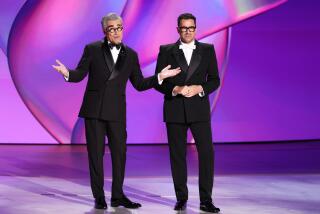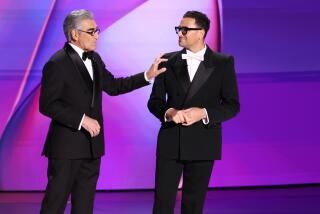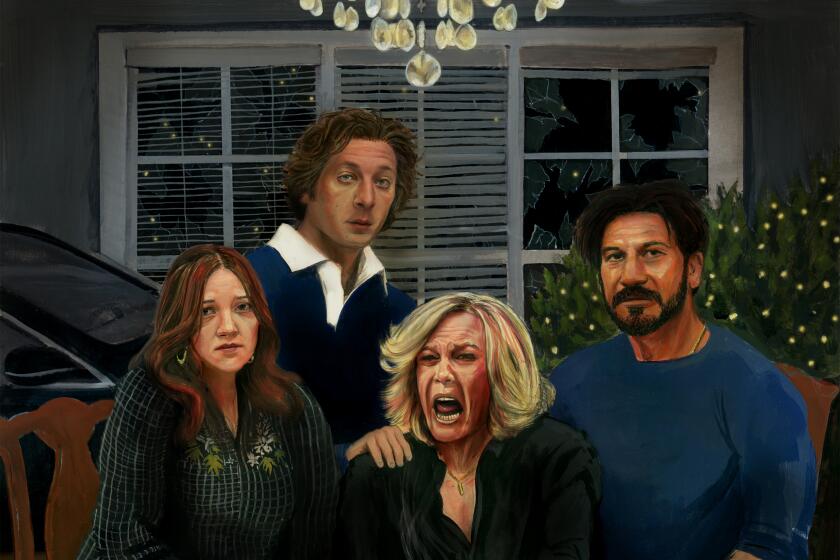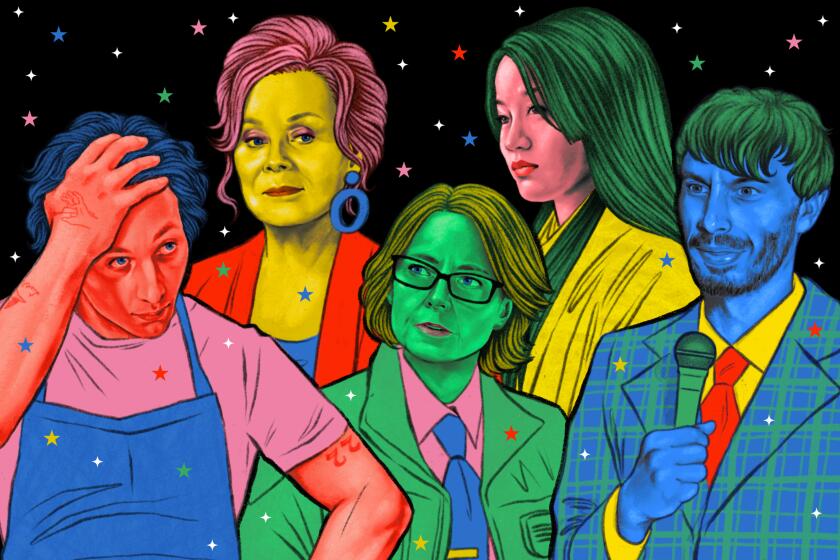Q&A: Emmys 2014: Jim Parsons tempers comedy wins with ‘Normal Heart’ nomination
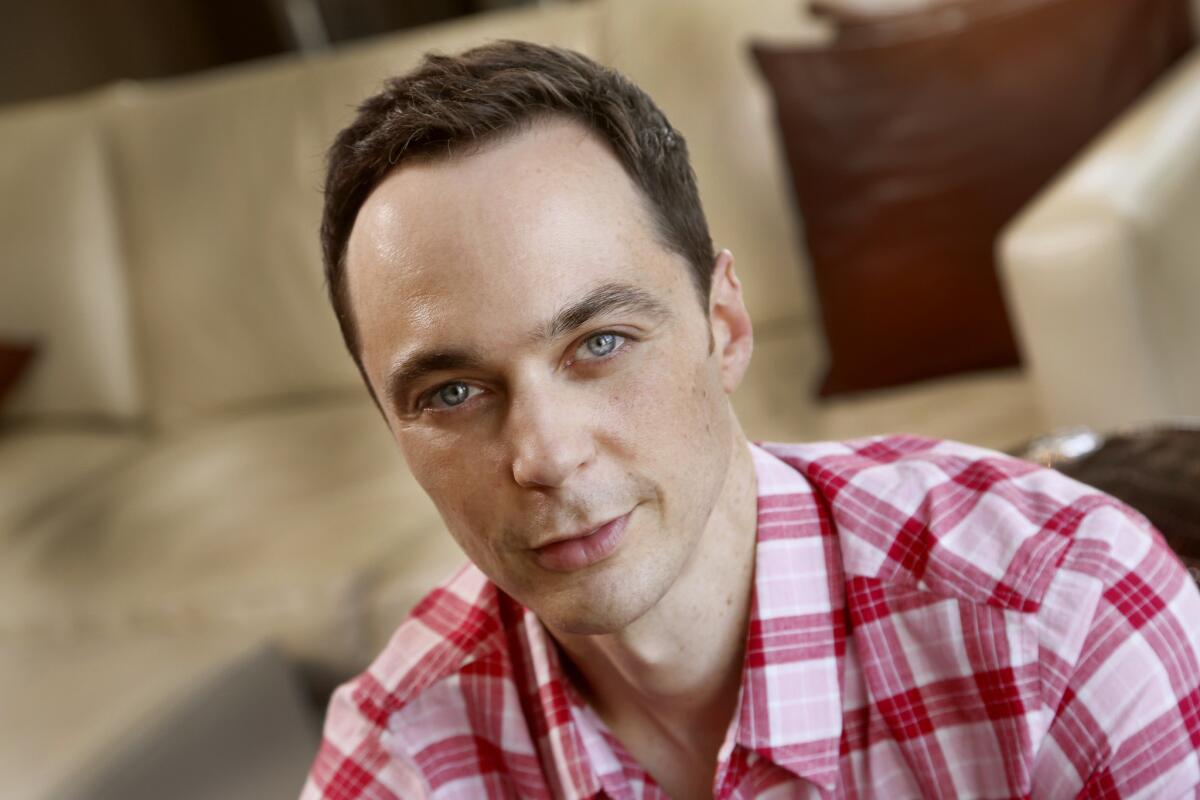
Arriving to talk over coffee at Lamill in Silver Lake, Jim Parsons shows up dressed casually in jeans and a polo shirt, no hovering entourage in sight — hardly what you’d expect of someone recently honored with two Emmy nominations. The 41-year-old actor earned his sixth nod for lead actor in a comedy for playing the brainy, socially inept Sheldon Cooper on CBS’ “The Big Bang Theory,” for which he already has three wins. He’s also nominated for very different work, for his supporting role as Tommy Boatwright in the HBO film adaptation of Larry Kramer’s searing AIDS drama “The Normal Heart.”
There’s a line in “Big Bang” where you’re comforting Kaley Cuoco’s character, and you say, “I made you a hot beverage. It’s in a to-go cup; make of that what you will.” That joke has a rhythm, a voice to it — how important is the writing to you?
It’s everything. It is what has kept this so interesting from the beginning, and several years in, it’s still interesting. I think that the longer the show goes on, the more you get asked, “When would you like to be done?” I have trouble imagining that. But I realize that in this instance the reason I can’t come up with an end date in my head is because of the writing.
You once joked about emailing your producer after the discovery of the Higgs boson “because I knew we had gold.” Has “Big Bang” changed how you read the paper? Do you go to the science coverage first?
No. For a while, yes. There did come a point in time where I found myself kind of avoiding the science section. [Laughs.] That sounds so ignorant: “I’m avoiding science.” But there was a time when I couldn’t get enough for the first few years, and then we did reach a tipping point for me where I’m like, “My brain is scienced out.”
In “The Normal Heart,” set in the early 1980s, Mark Ruffalo’s character is amazed that there are gay dances at Yale, his alma mater: “Imagine being able to dance cheek-to-cheek with your boyfriend in college.” What similarly represents that transition in time for you?
Well, certainly, marriage, and to such a degree that I still struggle with my own desire to get married. And this is why I think it’s so important: That was never something to pin any hopes on or any dreams on, even though in my early 20s, I felt assured that I was going to be able to love who I wanted to love, and I was going to be OK with that. I was fortunate not to have that fear, that I would need to hide who I was. But because I was in my 30s by the time [marriage] became something realistic, I think that’s why I’m not more like, “Oh, let’s do it and do it now.”
Because, while you recognize that as an important goal to achieve, it may not be a goal for you?
It wasn’t one. Not to say it won’t be. Like the president, I’m evolving on the issue. But, again, I do want to make clear how important it is that it’s happening now, so that is a possibility to a young mind. You can pin hopes on that.
You were in a stage production of “The Normal Heart” in 2011, but it was first performed in 1985. What does the play have to say to people here and now?
When the play first started, I was a child. As an adult male, a gay adult male, it was a real education to work on the play the first time. It doesn’t compare to actually living through it, but it is relentless. Maybe of all the things, that was the quality that Larry’s story had: that in ‘85, they understood that they were dealing with a relentless horror story, a battle. AIDS is still a major problem in the world, but now [“The Normal Heart”] is a lesson. I hate to say it’s a history lesson — that makes it sound like a boring movie, and it’s anything but — but it is, in a way.... There’s an aspect, even if you were alive [at the time], to watching it now and going, “I cannot believe this happened.”
Sign up for the Envelope Newsletter
More to Read
From the Oscars to the Emmys.
Get the Envelope newsletter for exclusive awards season coverage, behind-the-scenes stories from the Envelope podcast and columnist Glenn Whipp’s must-read analysis.
You may occasionally receive promotional content from the Los Angeles Times.
